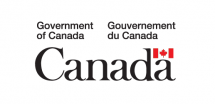Description
Open to all
Limited to 12 participants
Young adult fiction is a genre that has exploded in popularity in the last few decades, but it is a genre that is often hard to define. Many people want to write stories about adolescence, with teenaged protagonists. Does that automatically make the work YA? What exactly is YA? That is one of the questions we will seek to answer in this workshop as we look at the genre and talk about what makes it great. YA is exciting, explorative, and highly creative, allowing writers to experiment with novel structure and narrative voice. It is also challenging, in that the story must be engaging to young readers and speak to them in a way that is never condescending or pedantic. The writer must do all this with plots that are fast-paced and original, and with characters that are believable and never clichéd.
In this workshop, we will look at the components of the YA novel, including character, voice, plot, structure, setting, dialogue and figurative language. We will also discuss how to generate ideas, the writing and editing process, marketing and working with editors. Participants will learn how to deal appropriately with sensitive topics such as sex, violence and profanity. We will explore various forms of the YA novel, such as traditional narrative, journal form and the verse novel. We will also talk about different sub-genres, such as fantasy, historical, mystery, reluctant reader, and others. We will use John Truby’s book, The Anatomy of Story, as a support and guide to the process of storytelling. It is recommended that participants purchase this book.
Participants will have the opportunity to workshop their own writing on a designated night by sharing up to 20 double-spaced pages with the group. Fellow participants will read the work in advance and offer critiques in a supportive round table forum. Writers can then ask questions on their work and gain valuable advice for revision.
The schedule below shows the main topic of each session. Writing exercises, examples taken from published works, and discussion will be also part of each session.
Week 1: Introductory session Participants will introduce themselves and their work; they can also share their expectations for the workshop. Lori will introduce herself and her work to the group and provide an overview of the units that will be covered during the upcoming sessions. We will also lay out the workshopping schedule.
Week 2: Plot, structure, pacing.
Week 3: Character and voice.
Week 4: Setting, symbolism and figurative language.
Week 5: Dialogue.
Week 6: Publishing, submissions, expectations etc.
Week 7: Workshopping.
Week 8: Workshopping. Wrapping up loose ends, final questions.


